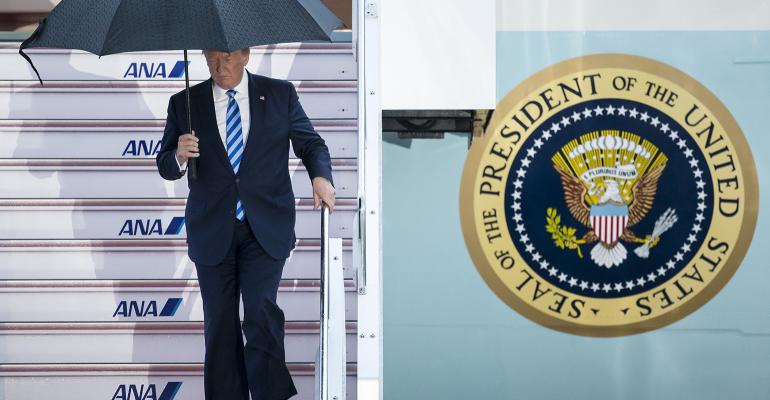By Josh Duitz
Trade conflict will be front and center at the upcoming G20 summit. This year the international forum of governments and central banks will be held Friday and Saturday in Osaka, Japan. While there will be representatives from 19 different countries plus the European Union (EU), the conversation is largely expected to revolve around U.S.-China trade tensions.
After trade tensions escalated and the surrounding rhetoric hardened in May, the path to resolution looks long and potentially difficult. Both sides seem to disagree on the definition of ”fair” when it comes to trade policies. China is unwilling to enact substantive changes to its industrial policy and U.S. President Donald Trump sees tariffs as an effective tool. These stances make it difficult to imagine a deal in the short term.
A few weeks ago, Trump threatened another round of tariffs if Chinese President Xi Jinping refuses to meet at the summit, which further contributed to market uncertainty. However, U.S. markets rallied on June 18 after Trump tweeted that he’d had a “very good” discussion with Xi and that the two intend to meet at the summit.
At this time, for the most part, companies have not made significant business decisions based on the antagonizing rhetoric. While companies have not moved manufacturing sites yet, it’s possible that some are stalling on M&A or investment decisions across borders until there is more clarity on the final rules of trade.
A notable exception is Apple, which is considering moving 15%-30% of its output from China to Southeast Asia, regardless of how trade tensions pan out. While Apple has not made the move official, it would be a significant change for the tech giant, which has relied heavily on China as a critical cog in its machine. It remains to be seen how prolonged trade tensions may impact company-level policies, production and performance.
If there is no trade deal, companies will have to rethink their international exposures overall—not just to the U.S. and China. Some investors are concerned other countries may find themselves entangled in these tensions. There is a fear they could snowball into a “cold war of trade.”
Despite these difficulties, we think it is possible that the two powers will strike a deal. Each nation has much to lose in a protracted trade war. China’s economy is feeling the strain, and the U.S. recently launched a $16 billion bailout to help its struggling farmers. Market stress might just be the key to unwinding the deadlock.
Until there is a clear path forward, we have downgraded our global economic forecast. While it is difficult to quantify precisely the direct and indirect impacts of trade tensions, they have caused global growth predictions to slow. With risks tilted toward a further escalation of conflict, we feel that the fallout could be more severe.
On the upside, global central banks have positioned themselves to support global economies in the event of a prolonged trade war and continued slowing global growth. Interest rates may remain lower for longer, which compels us to look at trends to determine which stocks may have relatively higher yields. We cannot predict the macroeconomic environment, particularly in light of these trade tensions. We can try to understand the macroeconomic background and focus on which themes may present opportunity for investors.
As bond yields remain low, investing in dividend-paying stocks may be a good opportunity. Historically, stocks that pay a dividend have outperformed stocks that do not. The yield on the S&P 500 Index is now similar to the 10-year bond yield, and in Europe the gap between bond yields and dividend yields is the widest it’s been in 100 years.
We believe that this low-interest-rate environment may lend itself to infrastructure investing. With rates this low, governments may seize the opportunity to build upon and improve infrastructure cost-effectively, which could present compelling investment opportunities. Infrastructure investing may both stimulate national economies in the short term and facilitate growth in the long term.
Regardless of the outcome of the trade dispute between the U.S. and China, we think that there will be an increasing demand for wireless connectivity in the coming years resulting from the move toward 5G networks and new data-reliant technologies. Data use is growing dramatically in both developed and emerging countries everywhere, making investment in cellular towers particularly compelling. The world is becoming less wired and more data-dependent, and we think that focusing on opportunities around these themes could be beneficial—trade deal or no deal.
Josh Duitz is manager of the Aberdeen Total Dynamic Dividend Fund at Aberdeen Standard Investments.





